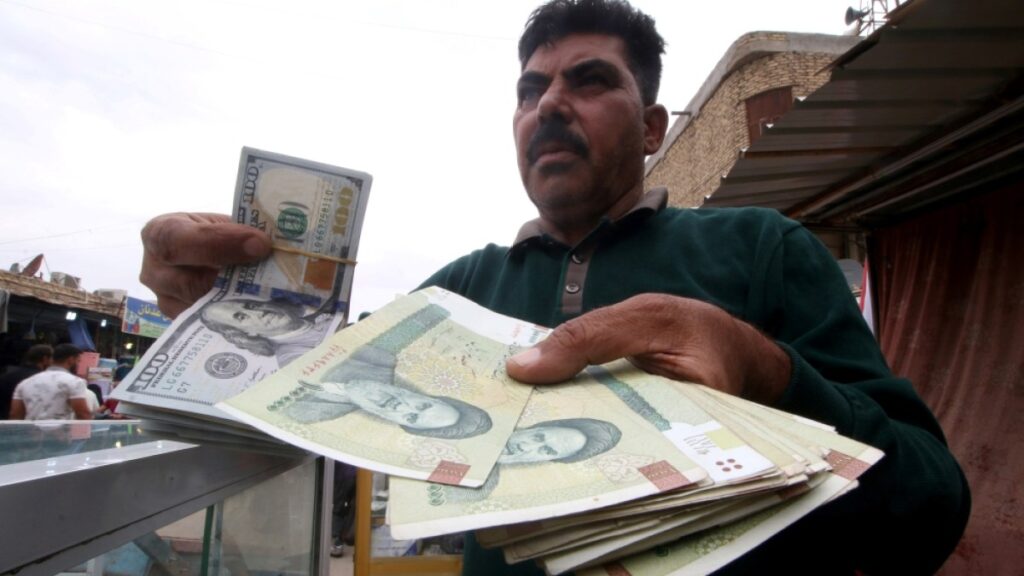The United States and Europe have long used unilateral sanctions as a tool of imperial power, to discipline and even destroy Global South governments that seek to shake off Western domination, chart an independent path, and establish any kind of meaningful sovereignty.
During the 1970s, there were, on average, about 15 countries under Western unilateral sanctions in any given year. In many cases, these sanctions sought to strangle access to finance and international trade, destabilise industries, and inflame crises to provoke state collapse.
For instance, when the popular socialist Salvador Allende was elected to power in Chile in 1970, the US government imposed brutal sanctions on the country. At a September 1970 meeting at the White House, US President Richard Nixon explained the objective was to “make [Chile’s] economy scream”. The historian Peter Kornbluh describes the sanctions as an “invisible blockade” that cut Chile off from international finance, created social unrest, and paved the way for the US-backed coup that installed the brutal right-wing dictatorship of Augusto Pinochet.
Since then, the US and Europe have dramatically increased their use of sanctions. During the 1990s and 2000s, an average of 30 countries were under Western unilateral sanctions in any given year. And now, as of the 2020s, it is more than 60 – a strikingly high proportion of the countries of the Global South.
Sanctions often have a huge human toll. Scholars have demonstrated this in several well-known cases, such as the US sanctions against Iraq in the 1990s that led to widespread malnutrition, lack of clean water, and shortages of medicine and electricity. More recently, US economic warfare against Venezuela has resulted in a severe economic crisis, with one study estimating that sanctions caused 40,000 excess deaths in just one year, from 2017 to 2018.
Until now, researchers have sought to understand the human toll of sanctions on a case-by-case basis. This is difficult work and can only ever give us a partial picture. But that has changed with new research published this year in The Lancet Global Health, which gives us a global view for the first time. Led by the economist Francisco Rodriguez at the University of Denver, the study calculates the total number of excess deaths associated with international sanctions from 1970 to 2021.
The results are staggering. In their central estimate, the authors find that unilateral sanctions imposed by the US and EU since 1970 are associated with 38 million deaths. In some years, during the 1990s, more than a million people were killed. In 2021, the most recent year of data, sanctions caused more than 800,000 deaths.
According to these results, several times more people are killed by sanctions each year than are killed as direct casualties of war (on average, about 100,000 people per year). More than half of the victims are children and the elderly, people who are most vulnerable to malnutrition. The study finds that, since 2012 alone, sanctions have killed more than one million children.
Hunger and deprivation are not an accidental by-product of Western sanctions; they are a key objective. This is clear from a State Department memo written in April 1960, which explains the purpose of US sanctions against Cuba. The memo noted that Fidel Castro – and the revolution more broadly – enjoyed widespread popularity in Cuba. It argued that “every possible means should be undertaken promptly to weaken the economic life of Cuba,” by “denying money and supplies to Cuba, to decrease monetary and real wages, to bring about hunger, desperation and overthrow of government”.
The power of Western sanctions hinges on their control over the world’s reserve currencies (the US dollar and the Euro), their control over international payment systems (SWIFT), and their monopoly over essential technologies (eg satellites, cloud computation, software). If countries in the Global South wish to chart a more independent path towards a multipolar world, they will need to take steps to limit their dependence in these respects and thus insulate themselves from backlash. The recent experience of Russia shows that such an approach can succeed.
Governments can achieve greater independence by building South-South trade and swap lines outside the core currencies, using regional planning to develop necessary technologies, and establishing new payment systems outside Western control. Indeed, several countries are already taking steps in this direction. Importantly, new systems that have been developed in China (eg CIPS for international payments, BeiDou for satellites, Huawei for telecom) now provide other global South countries alternative options that can become a pathway out of Western dependence and the sanctions net.
These steps are necessary for countries that wish to achieve sovereign development, but they are also a moral imperative. We cannot accept a world where half a million people are killed each year to prop up Western hegemony. An international order that relies on this kind of violence must be dismantled and replaced.
The views expressed in this article are the author’s own and do not necessarily reflect Al Jazeera’s editorial stance.


